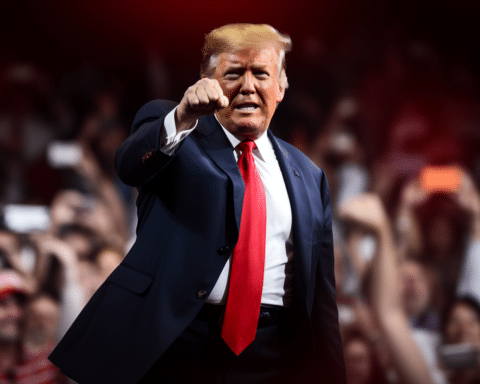With Donald Trump eyeing a potential return to the White House, Mexico is preparing for a turbulent shift in its relationship with the United States. Tensions have already surfaced after a public dispute over a recent conversation between Trump and Mexican President Claudia Sheinbaum. Trump claimed that Sheinbaum agreed to “close the Southern Border,” but her administration clarified that Mexico’s migration strategy emphasizes managing migration with respect for human rights rather than imposing strict border closures. This marks the beginning of what could be a challenging period of U.S.-Mexico relations under Trump’s leadership.
Mexico has implemented a proactive approach to managing migration, resulting in a 75% reduction in illegal border crossings with the United States. The government credits this achievement to policies designed to address migration at its roots while ensuring lawful entry through U.S.-sanctioned programs. This approach showcases a strategic effort to maintain domestic stability while fostering international cooperation, countering claims that Mexico is unprepared or unwilling to tackle migration issues.
Standing Firm Against Tariff Threats
Sheinbaum has taken a bold stance in response to Trump’s threats of heavy tariffs on Mexican goods, signaling a willingness to retaliate with reciprocal measures. She warned that escalating tariffs would jeopardize economic stability and shared business interests between the two nations. Her administration has emphasized that such punitive actions would harm both economies, especially given Mexico’s position as the U.S.’s largest trading partner.
In addition to addressing tariffs, Sheinbaum has criticized U.S. policies that fail to tackle the root causes of migration. She argued for greater investment in peace and development initiatives, urging the U.S. to reallocate resources from military spending to projects that address poverty and instability in the region. This approach underscores Mexico’s broader vision of fostering equitable and sustainable relations with its northern neighbour.
Addressing Fentanyl and Arms Trafficking
Mexico is also tackling U.S. concerns over fentanyl trafficking, a significant issue in bilateral relations. The Sheinbaum administration has enacted stricter penalties for those involved in manufacturing and distributing synthetic drugs while calling for international cooperation to curb the illegal import of chemical precursors. This holistic approach aims to address the supply chain of fentanyl, which has fueled a public health crisis in the U.S.
Meanwhile, Sheinbaum has highlighted the role of U.S. arms trafficking in perpetuating violence within Mexico. The majority of firearms seized from criminal groups in Mexico originate from the United States, creating a deadly pipeline that exacerbates cartel violence. Sheinbaum’s administration is pushing for greater accountability and measures to curb the flow of illegal weapons, emphasizing that Mexico bears a disproportionate share of the consequences of U.S. gun policies.
Responding to Trade Criticisms
Beyond U.S. relations, Mexico is addressing trade concerns raised by Canada, particularly accusations that it serves as a gateway for Chinese goods entering North America. Sheinbaum has refuted these claims, pointing out that Canada imports significantly more Chinese electric vehicles (EVs) than Mexico. Additionally, Mexico has imposed tariffs on Chinese EVs, steel, and aluminum, demonstrating its commitment to fair trade practices within the region.
Mexican officials have emphasized that China’s investment in Mexico remains minimal compared to its investments in Canada and the U.S. This context challenges narratives portraying Mexico as a backdoor for Chinese goods. By maintaining balanced trade policies and prioritizing its commitments under the North American trade agreement, Mexico continues to assert its role as a cooperative and transparent trade partner.
Stability Amid Uncertainty
Despite Trump’s rhetoric, Mexico’s economy has shown resilience. The peso has gained slightly against the U.S. and Canadian dollars, and the stock market has remained stable. Analysts interpret Trump’s threats as negotiation tactics rather than immediate policy shifts, suggesting that Mexico is not at imminent risk of economic disruption.
Drawing on lessons from Trump’s previous presidency, Mexican officials are adopting a strategic and measured approach. They plan to engage selectively in disputes and focus on defending long-term national interests. With U.S. exports to Mexico valued at $453 billion CAD annually, the economic ties between the two nations remain vital, underscoring the need for continued collaboration despite political tensions.
As Mexico navigates this uncertain period, its government is projecting confidence and preparedness, aiming to maintain stability while advocating for equitable and cooperative solutions to shared challenges.





